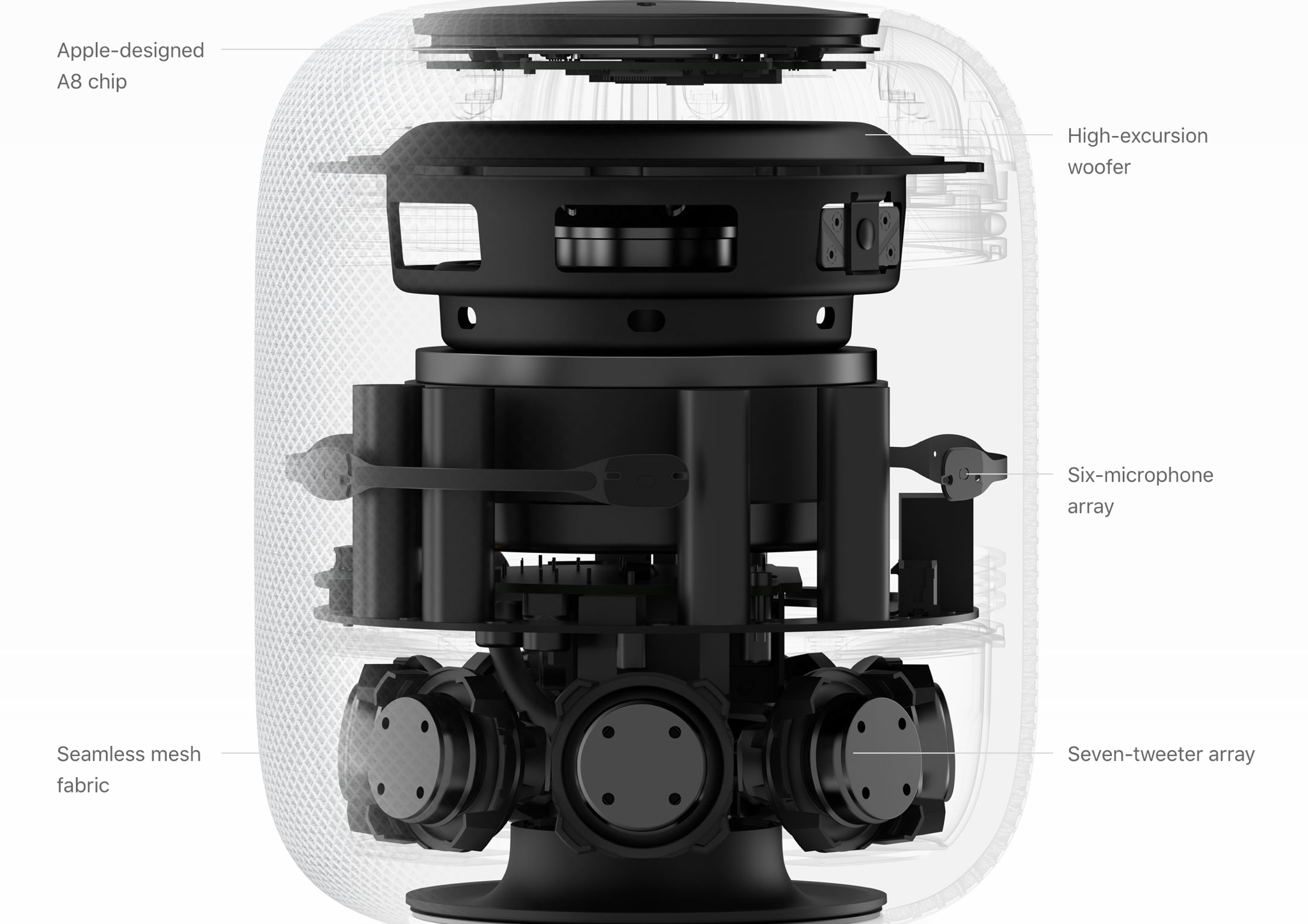
Japanese outlet Nikkei Asian Review speculated on Monday that a future HomePod might incorporate 3D-sensing features, including facial and image recognition that may or may not be based on iPhone X’s Face ID technology.
Noting that supplier Inventec is scheduled to ship its first HomePod batch before holiday season, the story says that a next-generation HomePod might use facial recognition which would presumably require some sort of dedicated 3D sensing hardware.
The basis for the report is the following quote attributed to Inventec’s President David Ho:
We see trends that engineers are designing smart speakers that will not only come with voice recognition but also incorporate features such as facial and image recognition. Such AI-related features are set to make people’s lives more convenient and to make the product easier to use.
While Ho did not specify which product he was talking about, Nikkei thinks he was referring to a future HomePod. According to Yuanta Investment Consulting analyst Jeff Pu, Apple could roll out HomePods with 3D-sensing cameras in 2019.
If this is true, I can’t imagine Apple is happy when its suppliers leak information about unreleased products. In fact, Apple is specifically calling out leaks from suppliers’ factories in its latest 10K report filed with the SEC last Friday.
The Company’s business also requires it to share confidential information with suppliers and other third parties. Although the Company takes steps to secure confidential information that is provided to third parties, such measures may not be effective and losses or unauthorized access to or releases of confidential information may still occur, which could materially adversely affect the Company’s reputation, financial condition and operating results.
In other words, Apple warns that the leaks could ultimately hurt its bottom line.
Inventec Appliances is currently the sole supplier of both AirPods and HomePod. The company also makes Xiaomi phones, FitBit wearable products and Sonos smart speakers.